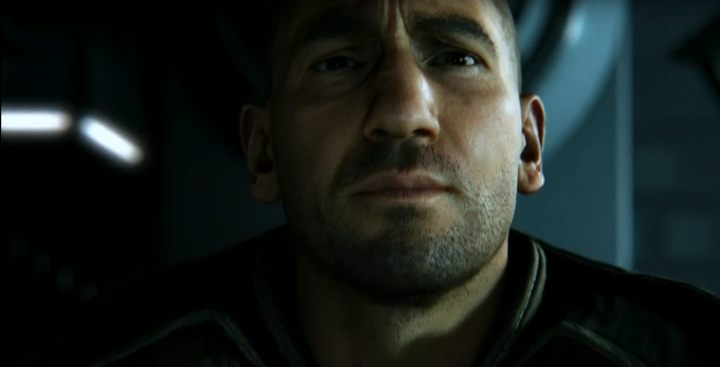
The Vice President of Editorial at Ubisoft, Tommy Francois, used E3 2019 to double down on the company’s position that it doesn’t mix politics with games. In an interview on Inside Ubisoft, he explained in detail how the company uses open world games with systems to simulate situations where players can experience all perspectives they would encounter in real life.
In response to Far Cry 5’s controversy, Francois said, “We believe that ultimately, in the future, players should be able to go in the game world, have as many different experiences as they want, experience as many different political views as they want, as many religions as they want … as many different fantasies as they want.”
That statement might pass inspection if Ubisoft’s games didn’t depend on political narratives. But they do. In fact, Ubisoft has a habit of using real-world events, locations, and history as background for games.
Far Cry, The Division, Assassin’s Creed, and Watch Dogs have all made, and continue to make, political statements through their gameplay. In Assassin’s Creed, we see assassins take down corrupt politicians and assist the needy. In Watch Dogs, we see a hacker fight against the oppressive Central Operating System that controls Chicago. And in The Division 2, agents fight against criminals and terrorists that threaten order in our nation’s capitol.
All these games show Ubisoft’s love for political themes. At this point, it’s become a staple of their brand. For a company that is so concerned with not making political statements, it seems to make a lot of them. The trend persisted in the previews we saw during the Ubisoft Press Conference at E3 this year.
If it has politics, it’s making a political statement
The first game we saw was a preview of Watch Dogs Legion. Ubisoft’s Clint Hocking spoke about the game’s setting in London, and how the city has influenced culture today. The example he used — Brexit — seemed oddly, specifically political. He didn’t elaborate on what that meant, but one can only assume that London’s current political dilemma was a source of inspiration for Watch Dogs Legion. This is further validated by the messaging on the official Watch Dogs Legion website. A description of the game reads, “The fate of London lies with you. Recruit a resistance and fight back.”

Ubisoft frequently draws from historical places and stories in it’s games. Watch Dogs Legion takes that a step further, using current events as the source of it’s story. It’s a premise that makes it clear what side of the fight you’re on, and it falls right in line with the theme of the aforementioned Ubisoft games.
If this isn’t an obvious political statement, then I don’t know what is.
Ghost Recon Blackpoint, another upcoming military shooter from the Tom Clancy franchise, makes its own statement. The story is mostly a mystery, but Ubisoft has introduced antagonist Cole D. Walker During the conference, we sat and watched as he gave a pep talk to a group of radicalized ex-Ghost operatives called The Wolves. The Wolves have taken over Auroa, and in Ghost Recon Blackpoint, you will be facing off against them. The reason for The Wolves’ defiance is still unclear, but Ubisoft alludes that Walker’s betrayal is a huge part of the game’s story.
Even without context, it’s plain that both these games center around groups facing political opposition in their respective stories.
Francois’ argument that offering different perspectives stops Ubisoft’s games from making political statements contradicts itself. Often times, we’re only experiencing stories from one perspective, and that perspective is a bias whether they want to own it or not. Political messages don’t need to be overt to exist.
It’s strange that Ubisoft doesn’t want to admit to something it’s already doing. The company itself is fairly progressive, leading initiatives in accessibility, diversity, and inclusion. It’s one of the publishers that hasn’t suffered from massive studio layoffs, and at the press conference, we saw multiple women developers take the stage.
Ubisoft is tip-toeing around the obvious messaging in its games. Francois stated in his interview that the publisher aims to create more mature games that are nuanced. But many other forms of media tackle serious and mature themes with nuance while delivering a strong message.
Ultimately, the reluctance to embrace politics doesn’t equate to more mature games. In fact, ignoring what’s obvious has the opposite effect. Stories that could be impactful are reduced to frivolous entertainment that trivializes the real struggles people face.
That’s a political statement, whether Ubisoft admits it or not.
Editors' Recommendations
- Final Fantasy VII Rebirth isn’t on Xbox, so play these RPGs on Game Pass
- The long, winding road to Baldur’s Gate 3 was paved with these Larian games
- The biggest gaming news of 2023: Insomniac leak, GTA 6 reveal, and more
- E3 is officially dead, as the ESA retires the historic gaming expo
- Zelda: Tears of the Kingdom isn’t our Game of the Year, but it’s the strongest No. 2 ever


